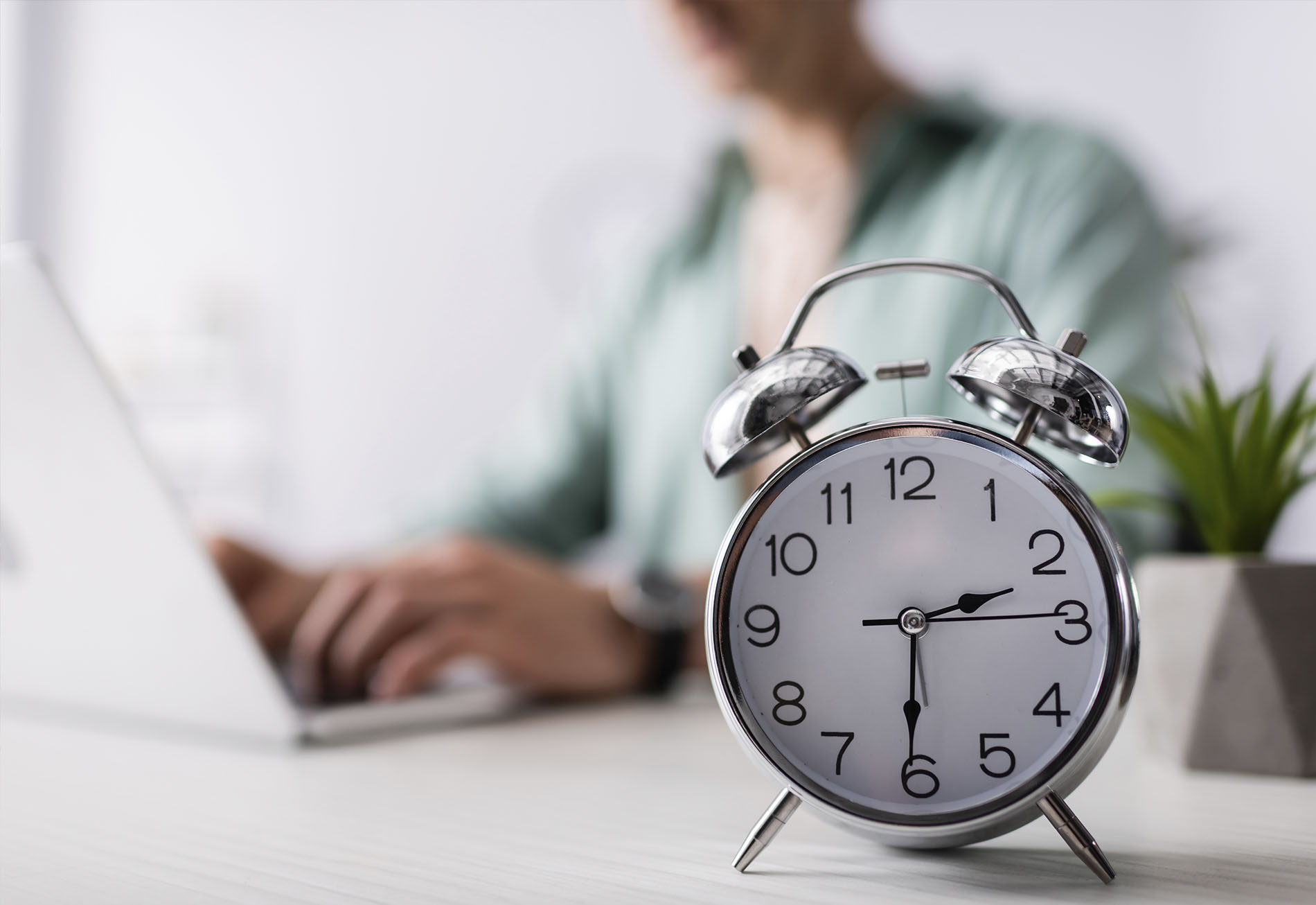Tips for improving time management
As the saying rightly goes, “time is precious”, but sometimes we find it hard to manage it well so we can make the most of it. Tips on improving your time management.
KNOW YOURSELF
Share

Our production capacity could be determined by evaluating our time management: the better use we make of our time and the better we manage it, we are said to have a higher productivity. But, is this really the case? Competitiveness, efficiency, effectiveness and productivity are concepts that pass over our day-to-day tasks. Could they be the characteristics of a good worker?
There is currently a trend that wants to humanise work in companies, treating workers better, as equals, aiming for them to be in charge of their own organisation and working, respecting their pace of working, meeting objectives or standards of the company: isn't this another way of facilitating productivity?
We all know and apply the saying “time is precious”. From a psychological point of view, it is a reductionist and utilitarian view. So much so, that it often causes people to have inner views where they think “I don’t make the most of my time, I don’t get things done on time, I don’t get everything done that I need to...”. A negative emotion therefore emerges: normally in the form of guilt and other negative feelings about our usefulness and competence, even leading to mental blocks in some cases.
This situation we are facing has a lot to do with the way we approach tasks: we can find ourselves performing several tasks at once, known as multitasking, which can sometimes catch us unprepared and we end up generating a negative perception of ourselves. This is perhaps the product of high expectations about our performance when tasks are assigned to us or when we self-assign and demand of ourselves.

How to effectively manage your own time
Before starting to list the main ideas, we are going to change perspective. Time is scarce but the tasks are plentiful. The perspective is to improve the management of energy to face day-to-day challenges.
1. Prioritise what is important: rest, food, hydration and sport. There is no chance of looking after or managing energy if we don’t have it and we don’t look after ourselves.
2. Eisenhower Technique: to order tasks, use the following outline:
- URGENT and IMPORTANT tasks: do them NOW.
- IMPORTANT but NON-URGENT tasks: set a day and time to do them.
- URGENT but NON-IMPORTANT tasks: delegate to someone else.
- NON-IMPORTANT and NON-URGENT tasks: don’t do anything.
3. Avoid distractions: TV, telephone, social networks... We lose time with these short moments of distraction that prevent us from focussing on what is important, on what we really want to do.
4. Note down the distractions: sometimes, while we are performing one task, other ideas come to mind about things that would be good to bear in mind: Make a note of them! That way, you won't forget about them, and they won’t cause a distraction.
5. Technological blackout: in order to concentrate on tasks, you have to sacrifice entertainment. Set some time aside to spend online and other times to be offline. We cannot always be available, enable the “do not disturb” mode.
6. Visualise: before starting a task, think about how you would like to do it, what means you require, how much time you need to do it and what degree of concentration it demands. That way, you can achieve the result you intend.
7. List of tasks: Who hasn’t done that on occasion? They form part of our lives and the most important thing is for them not to determine our mood when we see we haven’t done something. We need to pinpoint what we are going to do, no matter how small a task it might be.
8. List of NON tasks: What are the things that you can do but don't benefit you? Look ahead! Make a list of what you don’t want to do. It’s very effective.
9. 25 + 5 rule: once a task is planned, we put all of our energy into doing that task for 25 minutes. Afterwards, we rest for another 5 minutes, switch off and plan the next task. That way, we spend a specific amount of time on specific tasks.
10. Keep your desk tidy. You can’t work at a messy desk full of junk. Ensure it is kept tidy. If necessary, spend time tidying it before and after finishing work.






